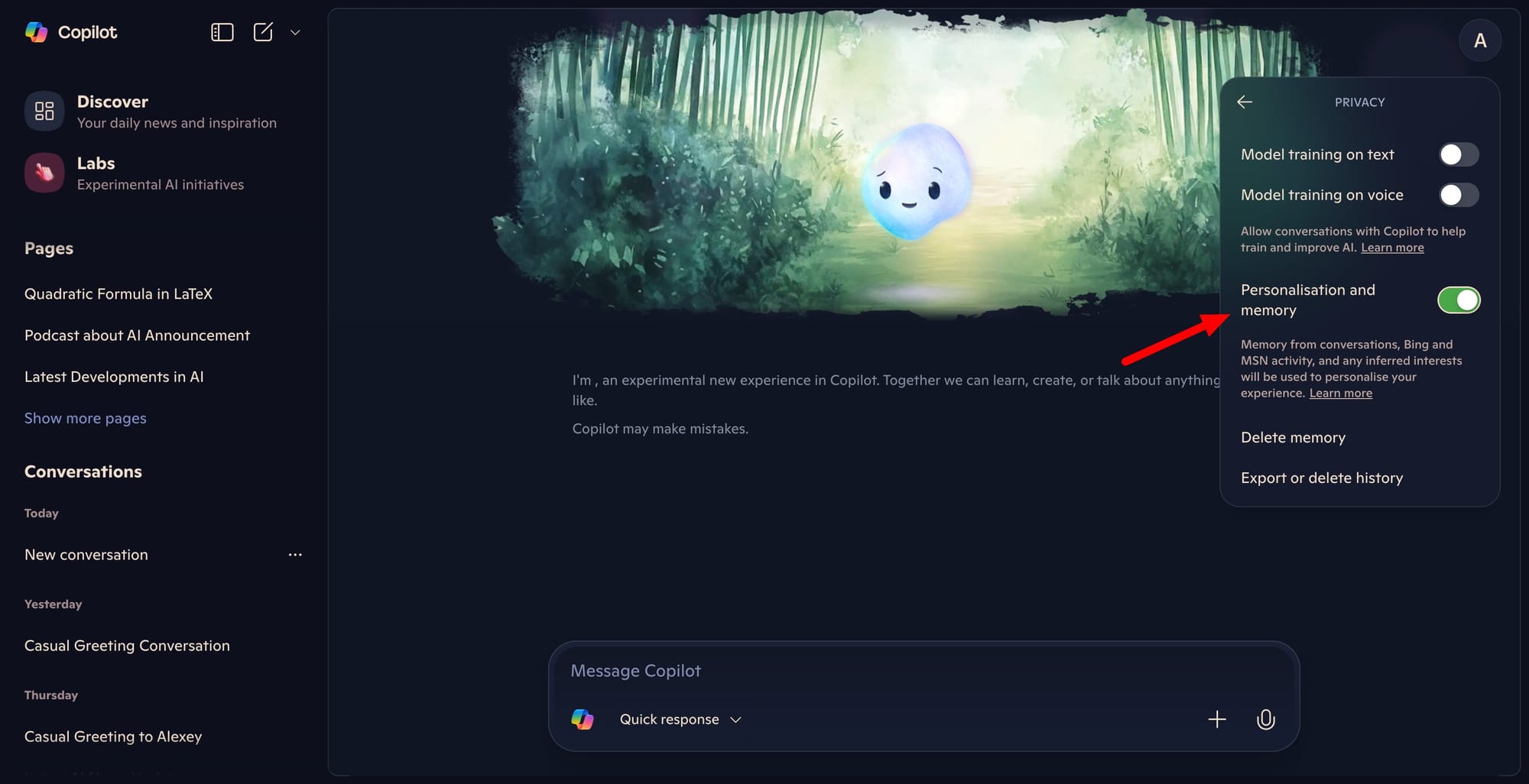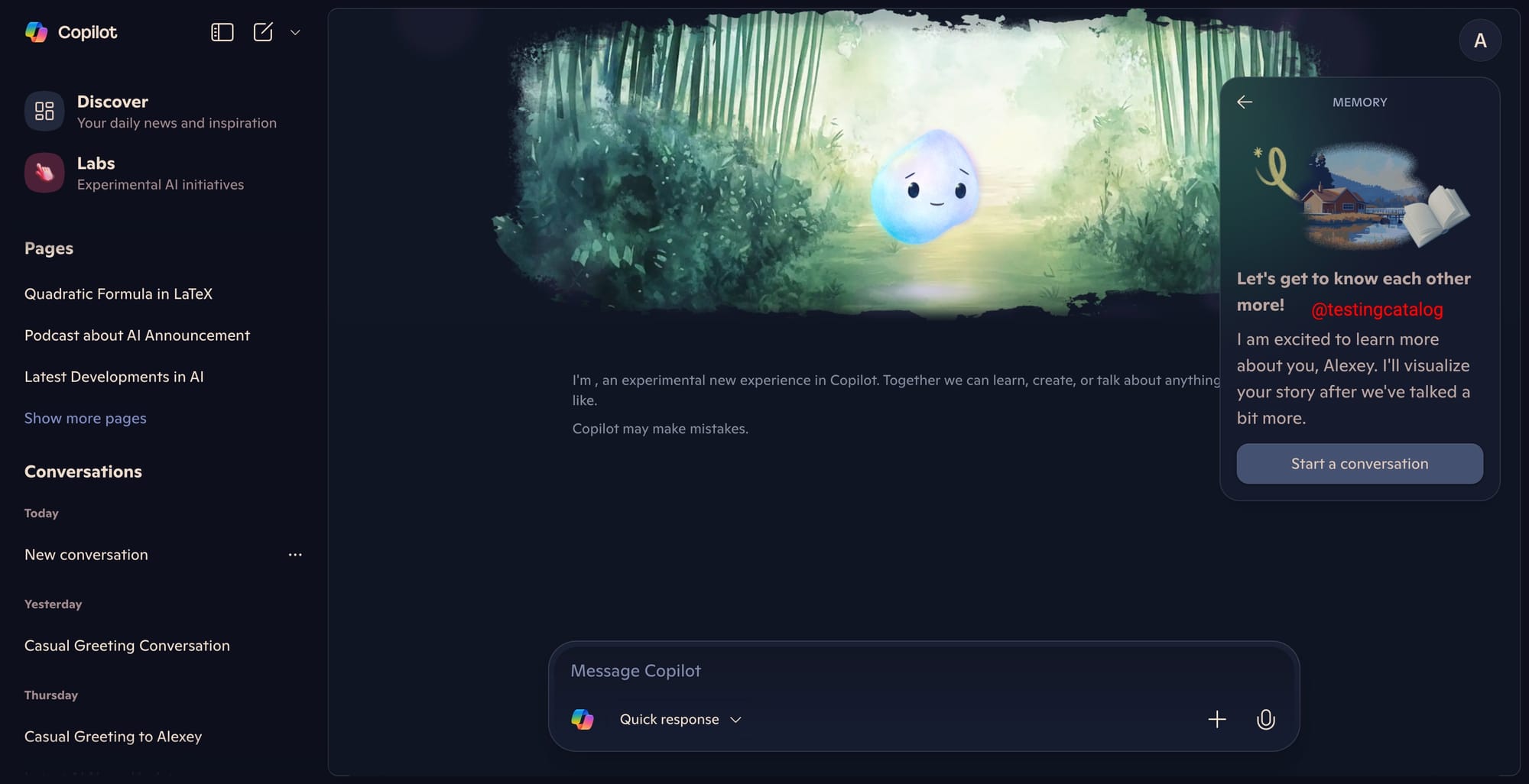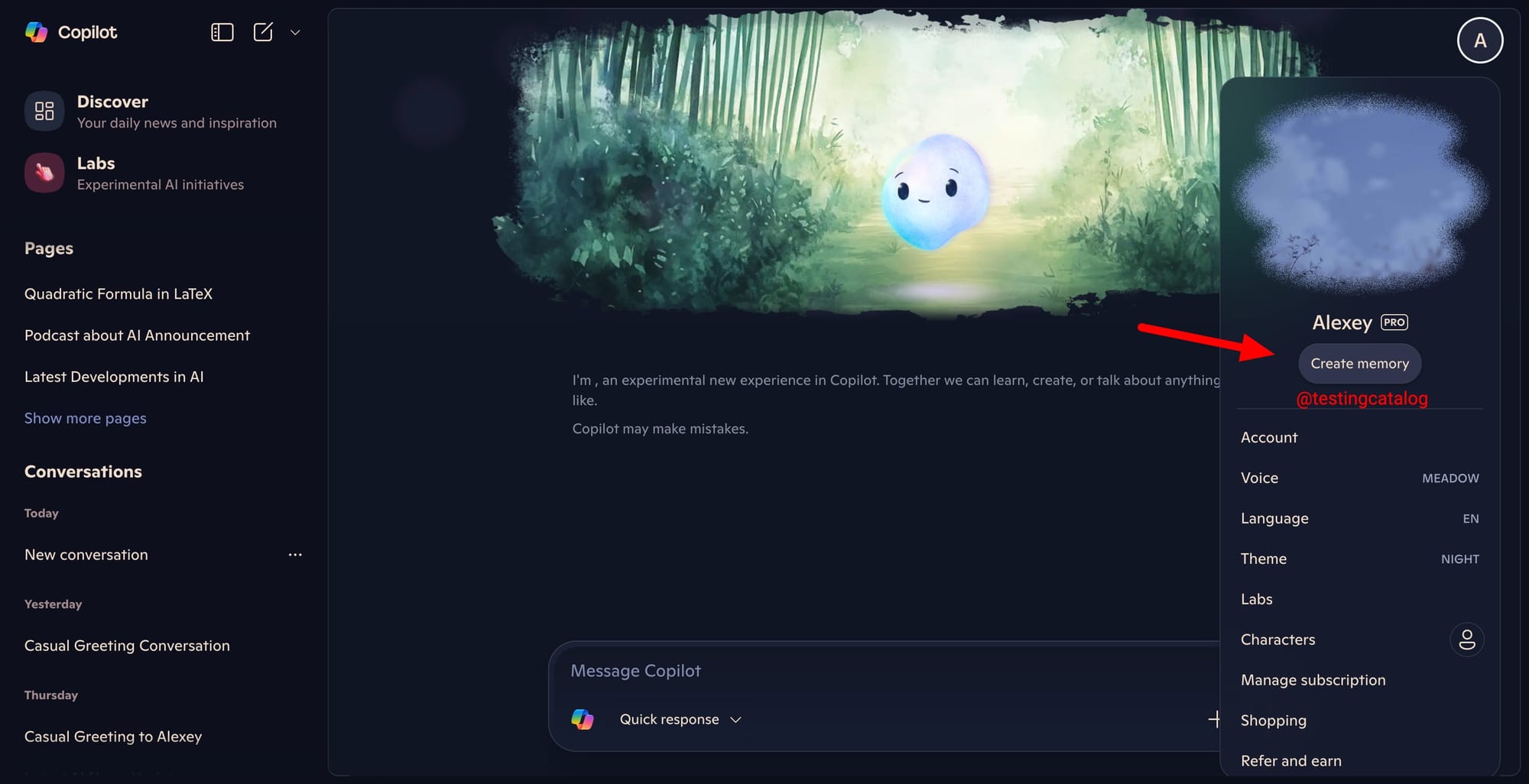Microsoft appears to be moving forward with a user memory feature inside Copilot, signaling another step toward parity with OpenAI’s ChatGPT. Recent reports from early-access users show a new setting under the “Privacy” tab of Copilot’s account settings labeled “Personalization,” which—when enabled—allows Copilot to retain contextual information about the user. This mirrors how ChatGPT’s memory works, but with Microsoft’s own UX interpretation.

Once personalization is toggled on, a new interface element labeled “Create Memories” appears under the user avatar, though its full functionality is still in question. Pressing it seems to trigger a standard chat session rather than a dedicated memory interface, implying that memories might be created through conversations, either explicitly by the user or automatically by the system. That would align with how ChatGPT handles memory, where certain facts are silently retained unless the user reviews them.

The exact rollout timeline remains unclear, but early signs suggest the feature is being made available to some Pro-tier users. As of now, only a subset of users appears to have access, which is consistent with Microsoft’s controlled feature testing.
The feature itself fits within Microsoft’s broader Copilot roadmap, which has consistently aimed to bridge generative AI into long-term user support scenarios. Introducing persistent memory gives Copilot a longer-term utility for tasks like drafting documents or scheduling, as it could recall user preferences or prior tasks. However, compared to OpenAI’s implementation, Microsoft’s positioning is quieter and appears more embedded in system settings than front-and-center in conversations.






